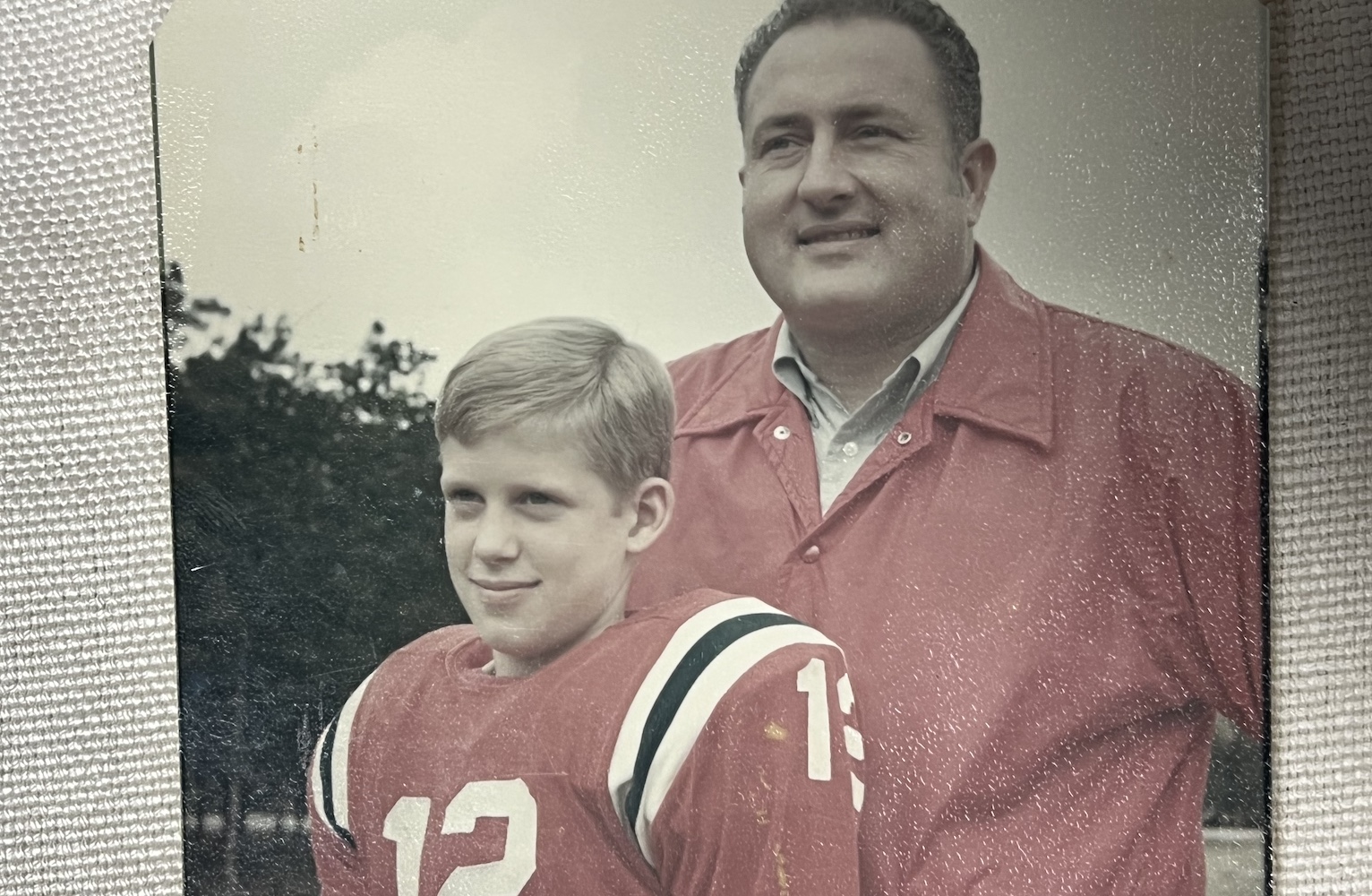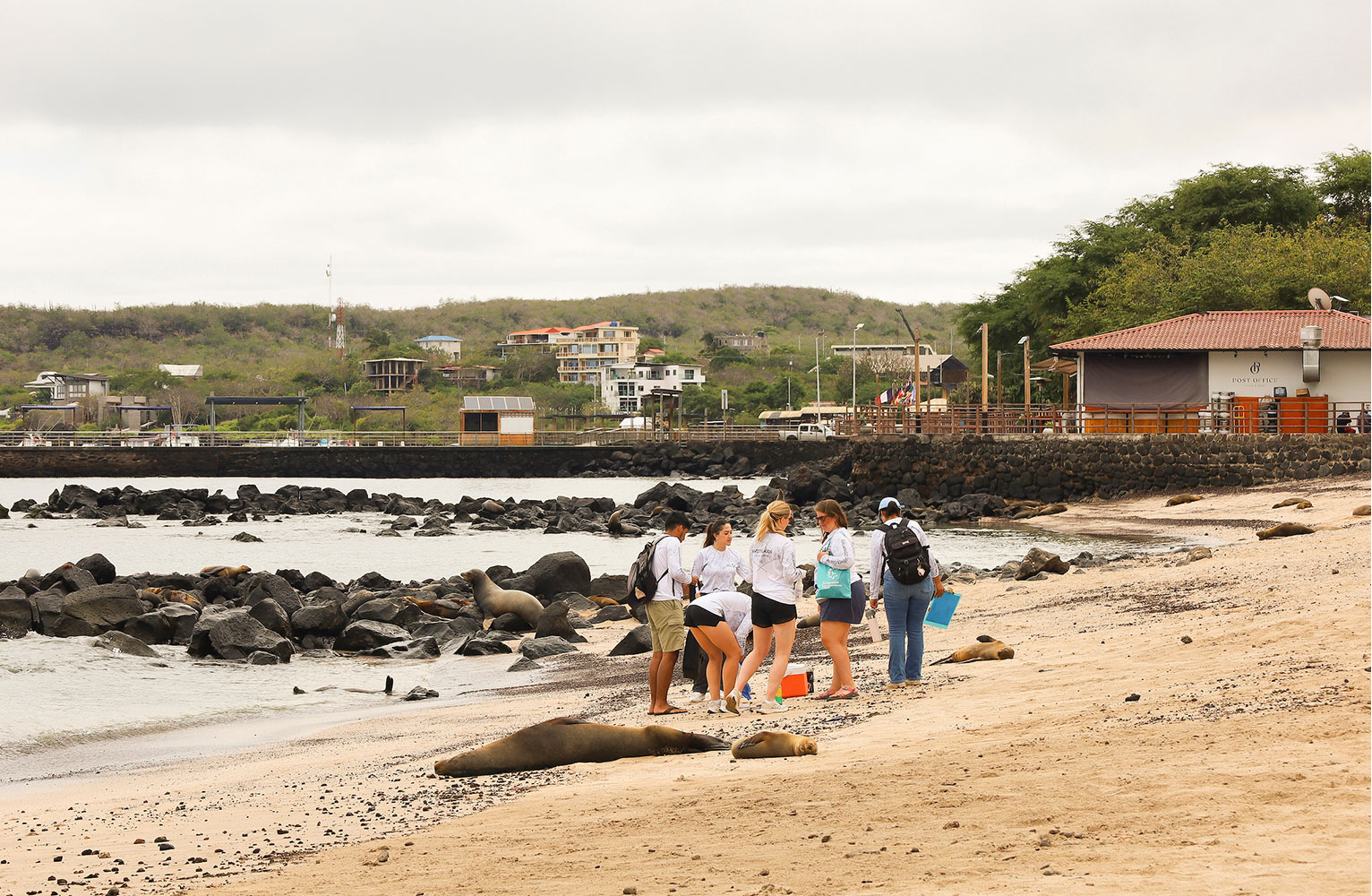
Sisters Shelley Belk ’81 and Van Eure ’78
Through the Foundation of Hope, sisters Shelley Belk ’81 and Van Eure ’78 continue a family tradition of supporting research at the UNC School of Medicine’s Department of Psychiatry.
Story by Drew Guiteras ’00
(Photos provided by the Foundation of Hope)
As the Foundation of Hope (FOH) celebrates its 40th anniversary this year, its many accomplishments are a testament to maintaining laser focus on the vision of its founders, the late Thad and Alice Eure Jr. Their singular mission was to fund research into causes of and treatments for mental illness.
This mission dates to FOH’s beginnings, when the Eures, Carolina alumni and residents of Raleigh, found that doctors did not have answers or solutions for their son’s mental illness following his diagnosis of bipolar and schizo-affective disorder as a teenager in the 1970s.
“My parents strategized, and they got advice from doctors across the country,” said Shelley Belk ’81, who is Thad and Alice Eure’s daughter and is executive director of FOH. “They chose specifically to fund research, and felt it was vital to focus there. And the model of the Foundation of Hope is still the same model that we have today – to fund seed research that few others are willing to fund but is so important.”
The Eures’ son, Thad Eure III, was a good student and a standout football player, with dreams of playing in college like his father, a lineman at UNC. He was also a naturally gifted musician who could pick up a guitar and work out chords to his favorite songs. “There was an intense athlete part of him, and a gentle soul musician part of him too,” said his sister, Van Eure ’78.
The onset of young Thad’s illness began in high school and progressed rapidly, presenting a jarring and devastating new reality for their family. Thad Eure Jr. was founder and owner of several restaurants including Raleigh’s beloved Angus Barn, a lively and social gathering spot that made the family’s life very public.
“The restaurant put us in a position where we were very much out in the community,” Belk said. “We were the prime example of a family that seemed to have all these great things going for us but were struggling with an illness that was very difficult.”

Thad Eure Jr. outside the Angus Barn.
For the Eure family, one challenge of coming to terms with the diagnosis was doctors’ inability to explain why their son had become ill or how to help him get better. One doctor told the family that there was more research into tooth decay than there was in the entire field of mental illness. As they and their son navigated these unknowns, the Eures became determined to provide researchers with an ongoing stream of funding to find answers.
“Both my parents, especially my dad, were at heart builders of people, and he had an amazing ability to get people to work together,” said Van Eure, who is now owner of the Angus Barn. “Neither of them ever went halfway with anything, and it was just in their nature to build something that would be lasting and much bigger than one gift.”
Forty years later, the result is a foundation that has awarded more than $10 million to Carolina and the UNC School of Medicine Department of Psychiatry, where FOH directs grants to provide early funding for promising research.
“They are a treasure and a catalyst for our work,” said Dr. Samantha Meltzer-Brody, distinguished professor and chair of the department. “We are a top research department in psychiatry in the country, and without a doubt that is due to the Foundation of Hope. Their support allows us to do pilot studies and then compete for even larger grants. And working with them is one of the best things I do because they are so singularly focused on doing good and making the world a better place. ”
FOH’s grants have spanned a range of mental illness topics, including eating disorders, women’s mood disorders, schizophrenia, substance abuse and anxiety. With initial investment in place to help launch their work, researchers at UNC have leveraged FOH grants into more than $254 million in funding from other sources.
One example comes from Dr. Cynthia Bulik’s work to understand genetic variations that contribute to anorexia. An initial FOH seed grant of $40,768 was subsequently leveraged into more than $29 million in funding from other sources, giving researchers unprecedented quantities of genetic data they can use to study this dangerous eating disorder
“There are so many examples of success that come from their seed funding model,” Meltzer-Brody said. “It has catapulted us to be one of the best clinical research programs in the country.”
Calling Meltzer-Brody’s leadership “visionary,” Belk said the close relationships developed through the years have yielded a partnership based on trust.
“All the department chairs over 40 years have been trusted friends of the foundation,” Belk said. “The investigators come to our luncheons, they come to our events. They support us just like we support them, and we believe that right there in Chapel Hill are some of the most talented people and teams anywhere doing this work.”
FOH continues to award grants for many research initiatives, and one recent emphasis has been on children’s mental health, which experts have declared is in a state of crisis. FOH is leading a multi-year effort to raise $5 million for the Department of Psychiatry’s Child and Adolescent Anxiety and Mood Disorders Program (CHAAMP), a multidisciplinary research program that investigates the prevention, diagnosis and treatment of anxiety and mood disorders in youth.
“Their funding for CHAAMP has been incredible,” Meltzer-Brody said. “We were able to recruit an amazing director and co-director, and the program dovetails so beautifully with UNC Health’s commitment to child and adolescent mental health.”
FOH’s positive influence also extends to the Triangle community and beyond, with fundraising events that have become cherished traditions for thousands of participants. Its signature event is the Walk for Hope, a 5K walk, run and festival held at the Angus Barn every October.
The Walk for Hope began in 1989 as an idea conjured in the breakroom at the Angus Barn by employees who wanted to honor Thad Eure Jr. following his death from pancreatic cancer. The first walk drew about 200 participants and has now grown to more than 3,000. All money raised by participants funds mental illness research at the Department of Psychiatry.
A recent addition is the Bahia Summer Sandbar Party, hosted in July by Don Holloway at his restaurant, the Bahia Beach House and Surf Bar in Atlantic Beach, North Carolina. The ticketed event quickly sold out and raised more than $110,000 for CHAAMP. Holloway, who grew up in Raleigh, played little league football for Eure and later worked at the Angus Barn, where he said he earned “a doctorate” in the restaurant business.
“I played three years for Mr. Eure, and we never lost,” Holloway said. “He was like John Wooden and Vince Lombardi rolled into one – he was that great of a leader. Those lessons stay with me, and this was my way of giving back.”
As FOH has grown through the years, Van Eure shared that one secret to its success is keeping its homegrown touch. “Shelley and I sign the letters, sign the thank you cards,” she said. “We could just do a stamp, but we don’t believe in that. We keep it personal.”

A young Thad Eure III with his father.
That authentic feel, of course, dates to the Foundation’s early days as a family’s heartfelt response to their brother and son’s illness. Belk shared that Thad Eure III still lives in Raleigh and is a gifted musician and avid reader. He works diligently with his physician to stay healthy.
“His journey and the way he manages his illness are an inspiration to me,” Belk said. “Thad is a miracle.”
Join the Foundation of Hope’s Campaign for CHAAMP to raise $5 million for the Child and Adolescent Anxiety and Mood Disorders Program.
Related Stories






